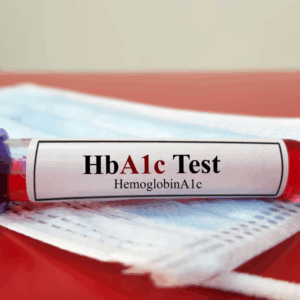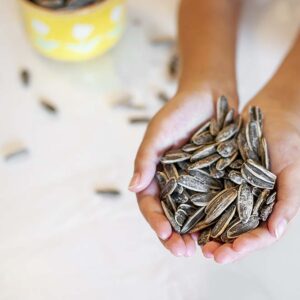Do We Use Only 10 Percent of Our Brain? The myth is finally answered, and the potential is exciting
Dear Living Well Daily Reader,
One of the most common questions about the human brain is: Do we really use only 10 percent of it?
This idea has pervaded popular culture, including that if we only tapped into that extra 90 percent, we could become geniuses.
A Scientific American article on this subject quoted neurologist and Baltimore local Barry Gordon at Johns Hopkins School of Medicine. According to him, “The ’10 percent myth’ is so wrong it is almost laughable.” I’ll just assume that, as he said this, he giggled maniacally and eventually burst out in a climactic guffaw.
Here’s the good news: The truth might be closer to the exact opposite. You may already be using 100 percent… but here’s the good news: You can use that 100 percent even better.
How?
My answer: “Chan phut Thai dai nit noi krap.”
“What on Earth did you just say?” you’d probably reply.
At which point I’d clarify…
In the last few weeks, I’ve been studying the Thai language. I just said, “I speak Thai a little.”
By learning and challenging ourselves (like, say, by learning a new language), we can upgrade the power of our 100 percent brain usage.
Scientists from the Center for Brain, Behavior, and Cognition and the Center for Language Science at Penn State showed this when they put 39 volunteers through a period of learning a new language. By the end, the language learners “increased gray matter density and white matter integrity.” Gray and white matter are major components of brain tissue. In other words, they developed better brains!
Whenever the subject of learning a language comes up, it’s usually followed by the quip of children being so much better at it. Just in case the “I’m too old” excuse is bubbling up in your mind, then you should know that these 39 volunteers represented all age groups… including seniors. So much for language learning being something just for kids, eh?
Speaking of activities supposedly just for young folks, here’s another one you might want to keep doing:
Working.
A study of more than 429,000 self-employed workers found that those who retired at 60 had a 14 percent higher rate of Alzheimer’s than those who waited until 65. Each year of delay resulted in a lower risk. The scientists believe it’s because of the mental engagement work provides.
Anyway, back to languages. For now, I’m only learning how to speak Thai. The language has a completely different alphabet, so when I write something like “khun narak mak,” it’s not so much genuine Thai as sounding out the words in English.
But for the purposes of engaging my brain (and visiting Thailand for the first time), it’ll do.
It might also help stave off Alzheimer’s. According to a study in India, knowing more than one language is associated with a near-half decade delay in developing the condition.
Now, you might think, Well, maybe that’s because anyone who gets to learn two languages probably has better health care and comes from a wealthier background. And that’s tough to rule out, but the study noted it’s the first to report “a bilingual advantage in those who are illiterate, suggesting that education is not a sufficient explanation for the observed difference.”
In other words, you now have no excuses. You have the power to keep your brain healthy, whatever your age or background.
So here’s your action step for better brain health:
Pick a new language and start learning. It will help your motivation if the language is spoken by the people of a country you want to visit. In my case, Thai for Thailand.
And you don’t need any money to start learning, either…
For some amazing insights into learning a new language from someone who walks the talk, check out Benny Lewis. He wrote an excellent guest post on Tim Ferriss’ blog, here, which Tim describes as the only post for language learning you’ll ever need.
I’ve followed his recommendation of using the free AnkiDroid app to make flashcards on my smartphone. At any time, I can open the app and go over words. The app even has a neat function where, if I feel like I’ve gotten a phrase memorized, I can select to not be tested on it for a longer time, such as 30 days. This way, I’m practicing just where I need to put in the most effort.
If you’ve always wanted to learn a second language but haven’t made the leap, use this extra brain health benefit to spur you to action. And if you’re already bilingual… keng mak!
That’s not the only brainpower trick we have up our sleeve. Tomorrow, you’re going to discover:
- What kind of exercise is best for improving brain health (this will definitely shock you)
- What lowers your risk of Alzheimer’s more, a good diet or proper exercise? Again, the answer might surprise you
- The gene possessed by 20 percent of the population that puts you at a higher risk for Alzheimer’s (and how to protect your brain in spite of this).
Sincerely,

Nate Rifkin
Underground Health Researcher
Written By Nate Rifkin
Nate Rifkin is an obsessed health and mind-power researcher and author. To hear more from Nate, sign up to receive Living Well Daily for free, here.
View More Free Articles
"Invisible" Food Ingredients SABOTAGE Blood Sugar
If you’re trying to keep your blood sugar in check, you know the drill. Cut way back on sugar in your diet. While you’re at it, rein in your fat intake too, which can lead to insulin resistance. And don’t forget the extra calories—they add up fast and can sabotage your blood sugar control. But...
The Alarming Microplastic Secret Hidden in Your Chewing Gum
Today I want to honor and thank mothers and mother figures whose caring hearts have guided us through life’s journey. Your love has shaped generations. Happy Mother’s Day! That pack of gum in your pocket may be doing far more than just freshening your breath. A disturbing new study finds chewing gum is a surprising...
Plant Compound SLASHES A1c Levels in 12 Weeks
Diabetes is skyrocketing in the United States. And the trend shows no sign of slowing down. The projected number of adults with diabetes is expected to increase from 22.3 million (9.1 percent) in 2014 to 39.7 million (13.9 percent) in 2030, and further to 60.6 million (17.9 percent) by 2060. That’s a massive 165 percent...
Two-Week Diet Switch Transforms Your Health
You know how you feel sluggish and “off” after a vacation filled with fast foods and processed snacks? Well, it’s not all in your head (or merely guilt). When you switch to an unhealthy Western-style diet, there are physical consequences—and they kick in faster than you might think… The Western diet is characterized by ultra-processed...
WARNING—Your Water Bottle Is Hiding a Disgusting Secret
Recently, a few people have asked me if it’s true that their water bottle has more germs than a toilet seat. It’s a shocking comparison that’ll make you think twice about everyday objects you use without much thought. So, is this claim true? Well, I must warn you that you might not like the answer…...
Research Reveals 3-for-1 Brain Protection "Checklist"
Age-related brain diseases—including stroke, dementia, and depression—threaten our quality of life. They can take the shine right out of your Golden Years. But you don’t have to take these threats lying down. While there are no guarantees in life, there are steps you can take to turn the odds in your favor—especially when it comes...
Mailbag: Your “Healthy Diet” Might Leave You Running on Empty
“Do supplements really work?” Hopeful Skeptic Hi Hopeful, That’s a fantastic question! It gets straight to the heart of a vital fact about human biology. Our bodies are incredible machines. But they don’t work in a vacuum. They require outside help to function. For example, they can’t manufacture most vitamins and minerals on their own....
Forgotten 80s Superfood Reemerges as Artery Superstar
Do you remember when vitamin E was the talk of the town? This common nutrient had a surge of popularity in the 80s and 90s. But now I can’t remember the last time I had a patient ask me about it. Well, it turns out this forgotten 80s superfood deserves another moment in the spotlight....
Strokes CAN Strike Twice—This Simple Fix Cuts Your Risk 20%
They say lightning never strikes twice in the same place. But that old adage couldn’t be further from the truth when it comes to strokes. If you’ve had a stroke, you might think you’re out of the woods once you recover. But the reality is far different… A comprehensive study published in JAMA revealed the...
Can Your Diet Defend Your Brain From Aging?
Our brains work hard every day, helping us solve problems, create memories, and connect with loved ones. But as we age, they face new challenges that can quietly chip away at our vitality. One of those challenges? The buildup of iron. Though iron is essential for many functions, too much can harm your brain, contributing...









